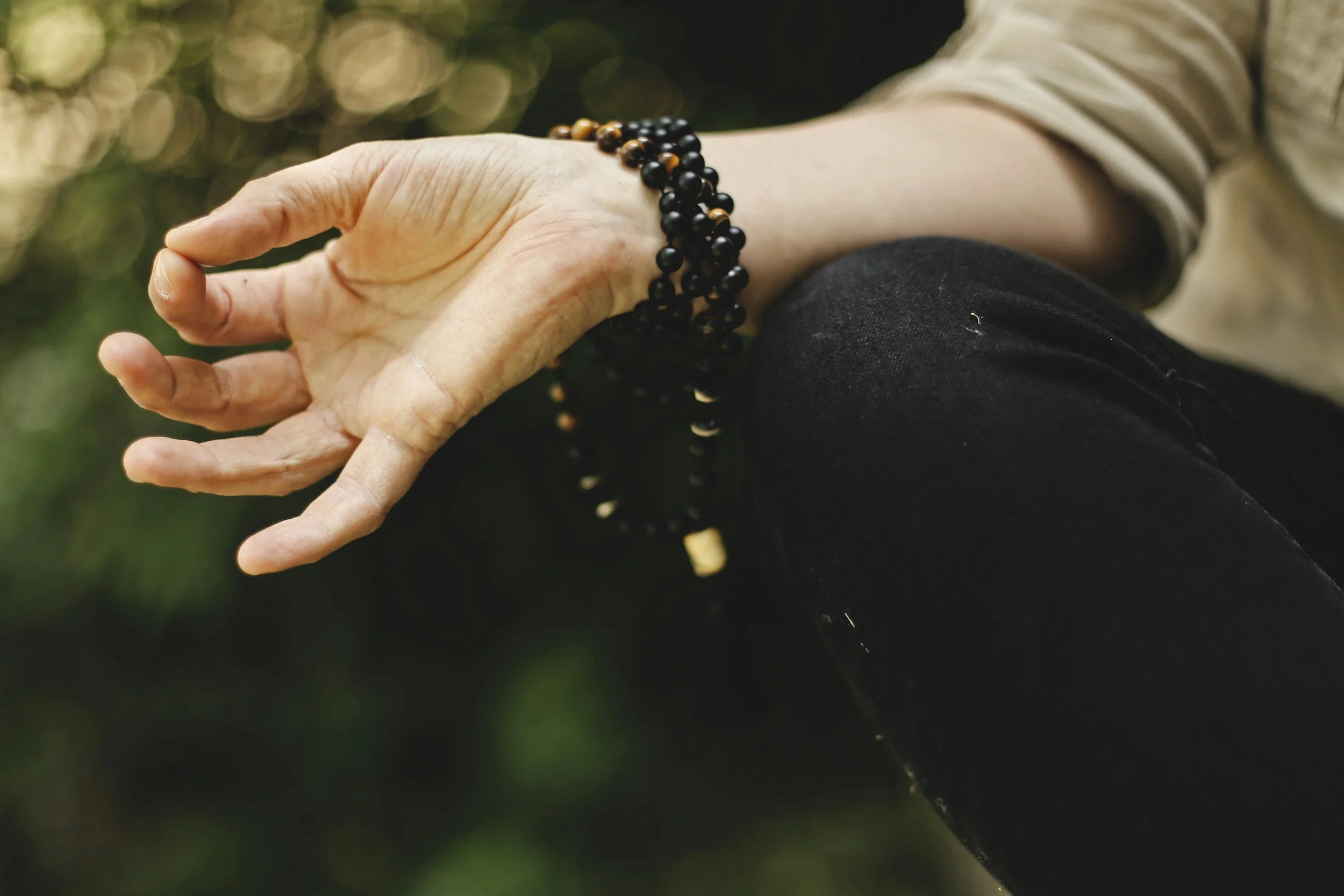A Journey through Working with the Chakras: The Root Chakra
Welcome, lovely people, to another journey of self-discovery and healing. Today, we're diving deep into the part of our energetic being that links us to mother earth: the Root Chakra. This vital energy center is shaped like a cone, its apex is located at the base of the spine. This chakra is our grounding force, connecting us to the Earth and providing safety, stability, security, and our sense of groundedness. When our Root Chakra is out of balance, it can manifest in various physical, mental, and emotional symptoms. Let's talk about what some of the most common symptoms are and some techniques to help you regain your balance.
Signs Your Root Chakra is Either In or Out of Balance
When our Root Chakra is in balance we feel strong, capable and confident in our ability to provide for ourselves and our families. We feel secure. We have access to food, shelter, and loved ones. We may struggle but overall, we take comfort in the knowledge that we are safe and secure. And, we trust in this feeling and our ability to provide for ourselves and our families in this way.
The Muladhara, Root Chakra, can be thrown into a state of imbalance by events that make you feel unsafe. This includes circumstances like death of a loved one or loss of a significant relationship through separation, a break up, or divorce. It also encompasses events like the loss or instability of a job, financial struggles, loss of a home or just any event that makes you question your safety or your ability to ensure the security for yourself and those you love.
So what does it feel like when your Root Chakra is thrown out of whack? Just like a pendulum swings from side to side when it is yanked from its center, so too do your chakras respond by swinging in and out of balance when your sense of security is shaken; either going in one direction or in the opposite or even sometimes oscillating between the two before settling into a balanced state again. Without going into too much depth, you may find yourself swinging between taking big risks or not being willing to take risks at all.
Physically you may react by feeling sluggish or tired even after having plenty of rest. You may notice an uptick in klutziness. Some experience aches and pains in their hips, tail bone, legs, knees, ankles, and/or feet. In short, we stop moving because we are hurting and it can feel safer to be out of the flow of activity.
Not only do we feel physical effects but we will endure mental and emotional ones too. When it’s closed (or underactive), the Muladahara is famous for causing some of us to get “stuck in the mud” and become rigid with our decision making. Our willingness to take chances is at zero when we are in this state. That said, when the root chakra is too open (or overactive) we do the exact opposite. We are willing to take chances that we wouldn’t normally take. These decisions can be harmful to our overall health and wellness and even compromise our safety.
If you are experiencing some of these symptoms your Root Chakra may need balancing:
1. Emotional Symptoms:
Fatigue: Constantly feeling tired or drained, despite adequate rest.
Tailbone, Hip, Knee, and/or Ankle discomfort: Pain or stiffness in these areas.
Leg and Feet Problems: Pain, numbness, or issues with mobility (feeling like you’re walking through sludge).
Feelings of Clumsiness: Instability when engaging in physical activities.
2. Emotional Symptoms:
Anxiety and Fear: Excessive worrying about financial security, personal safety, or basic survival needs.
Feeling Unsettled: A persistent sense of not feeling at home really anywhere.
Insecurity: Feeling unstable or unsupported in life. Unwilling to take chances even when it’s in one’s best interest.
Disconnected: Feeling like you are out of your body.
Over Confident: Taking too many risks even to the point of compromising one’s safety. Showing very little concern for the safety of one’s physical or financial health. More willing to gamble.
Overspending
3. Mental Symptoms:
Difficulty Concentrating: Struggling to focus or make decisions.
Procrastination: Avoiding tasks or responsibilities due to fear of failure.
Obsessive Thinking: Fixating on worst-case scenarios or negative outcomes.
Embracing Balance: Nurturing Your Root Chakra
As we draw this exploration of the Root Chakra to a close, remember that your journey towards balance and harmony is a sacred one. The Muladahara, with its grounding essence, serves as the base upon which all other energies build. By tending to this vital center, you are not only fostering stability and security but also enhancing your overall sense of well-being.
When you sense imbalances in your Root Chakra, whether physical, emotional, or mental, know that these are invitations for deeper self-care and healing. Embrace practices that restore balance—grounding exercises, mindful meditation, and nurturing activities that connect you with the Earth. These steps will help you regain your footing and reestablish a sense of security.
Take time to honor and listen to your body’s signals. Whether you’re feeling fatigued, anxious, or disconnected, these are clues that your Root Chakra may need attention. By addressing these signs with compassion and intention, you pave the way for greater stability and confidence in your life.
May your journey through balancing the Muladhara bring you profound healing and grounding. As you nurture this energy center, you will find yourself more firmly rooted, more secure, and more aligned with the beautiful flow of life.
Thank you for joining me on this transformative path. Until next time, may your energy be grounded, and your spirit be uplifted.
With warmth and love,



